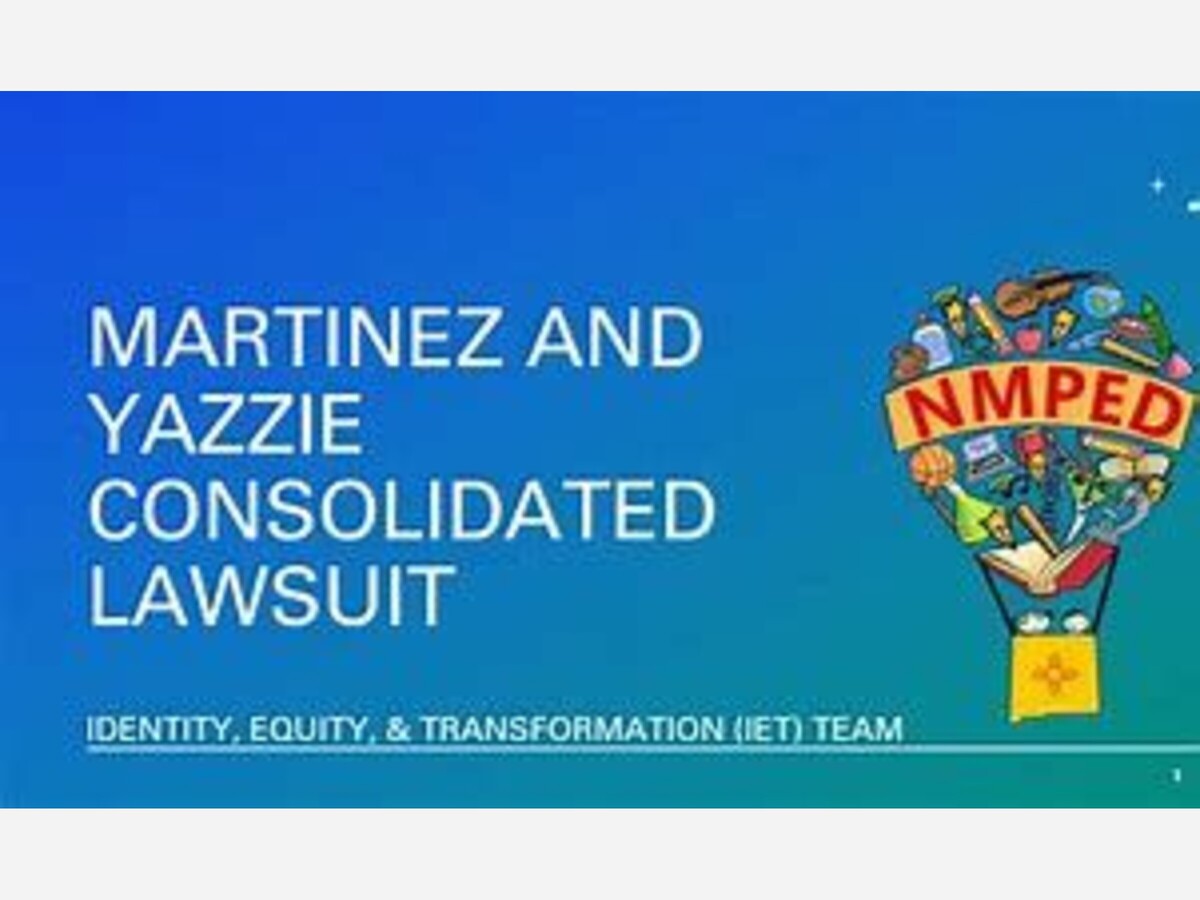Image


The New Mexico legislature held a joint budget session of the House and Senate education committees on Monday to tackle issues related to public education and student outcomes. The New Mexico lawmakers were focused on their intentions to prioritize literacy, staff shortages, attendance, pay increases, career technical education and improving outcomes for students across diverse student populations within the state.
Analysts with the New Mexico Legislative Education Study Committee and the Legislative Finance Committee proposed the following investments for such initiatives:
The $3 million for the literacy center funding is significantly below the governor’s request of $30 million.
Per Source New Mexico reports that representatives Yanira Gurrola, Patricia Roybal Caballero,
Charlotte Little, Kristina Ortez, Derrick J. Lente
The introduced House Bill 39 would create pipelines between the state’s colleges, universities and tribal colleges to bring bilingual educators into K-12 schools. She said in the committee meeting that it’s not enough for someone to be certified. It requires funding and resources for bilingual programs to be successful.
“Some of the schools who were presented to us as schools that beat the odds and were successful, they were trained in structural literacy and they were supplemented by other trainings to meet the needs of the diverse population,” Gurrola said.
Under consideration House Bill 39 (HB39) would make appropriations for 42 initiatives at public postsecondary educational institutions and tribal colleges to develop and support educator workforce and school leadership development, health and wellness, culturally responsive frameworks, and Indigenous college access initiatives.
Appropriations would be directly allocated to the University of New Mexico (UNM), New Mexico
State University (NMSU), New Mexico Highlands University (NMHU), and the Higher Education
Department (HED). HED would be responsible for allocating funds to Navajo Technical
University (NTU), Diné College, Southwestern Indian Polytechnic Institute (SIPI), and Northern
New Mexico College (NNMC).
Key points:
Educator workforce and school leadership. HB39 would allocate funding to four state colleges
and two tribal colleges for educator workforce and school leadership development, culturally
responsive health and wellness programs, culturally sustaining frameworks, and Indigenous
college access initiatives.
HB39 includes funding to higher education institutions and HED to develop undergraduate programs for bilingual education, increase recruitment and retention services for students, develop culturally and linguistically relevant curriculum and materials, increase the number of bilingual faculty, and provide professional development and technical assistance.
Culturally responsive health and wellness. HB39 includes funding to UNM’s health science’s center to recruit students into medical school pathways who are committed to in-state service, as well funds to UNM, HED, and NTU to develop supports and training for social workers and behavioral health practitioners.
Culturally sustaining frameworks. The bill includes 10 separate appropriations to postsecondary education institutions and HED for the development of culturally sustaining curriculum, including an online indigenous planning certificate program at UNM; the provision of courses and minors in Native American studies, Chicana and Chicano studies and borderland and ethnic studies at UNM; partnerships between NMHU and school districts to provide K-12 project-based learning focused on ranching, agriculture, food traditions, and other natural resource utilization; as well as other cultural and linguistic program supports.
Indigenous college access initiatives. HB39 includes nine appropriations ranging from $200 thousand to $2.5 million to UNM, NMHU, NNMC and HED toward recruiting a diverse healthcare workforce, increasing higher education access, and supporting higher education program costs.
Tribal Remedy Framework1. The Tribal Education Alliance produced the report, Pathways to
Education Sovereignty: Taking a Stand for Native Children that builds upon the Tribal Remedy
Framework by taking the recommendations made by tribal leaders and community members in
response to the Martinez-Yazzie court ruling. The report describes how New Mexico’s tribes,
nations, and pueblos can reclaim education of their children by proposing “shared responsibility and increased tribal control over the schooling of Native children” as the first of three strategic solutions to address historical injustices and ensure equitable outcomes for Native American students.
This legislation is the response to a lawsuit and a court order. Martinez-Yazzie Education Sufficiency Lawsuit. In 2019, the 1st Judicial Court issued a final judgement and order on the consolidated Martinez-Yazzie education sufficiency lawsuit, finding New Mexico’s public education system failed to provide a constitutionally sufficient and adequate education for at-risk students, defined as English language learners, Native American students,
students with disabilities, and students from low-income families. The court pointed to high school graduation rates, student test proficiencies, and college remediation rates as indicators of how the state is not meeting its constitutional obligation to ensure all students are college, career, and civics ready. The court’s findings suggested overall public-school funding levels, financing methods, and PED oversight were deficient. As such, the court enjoined the state to provide sufficient resources, including instructional materials, properly trained staff, and curricular offerings, necessary for providing the opportunity for a sufficient education for all at-risk students. Additionally, the court noted the state would need a system of accountability to measure whether the programs and services actually provided the opportunity for a sound basic education and to assure that local school districts spent funds provided in a way that efficiently and effectively met the needs of at-risk students. However, the court stopped short of prescribing specific remedies and deferred decisions on how to achieve education sufficiency to the legislative and executive branch instead.
The court also cited testimony regarding the importance of “culturally relevant” curriculum where programs or services are planned, designed, implemented, and evaluated respecting and
accounting for the client’s cultural and linguistic values and heritage. The appropriations in HB39 would support programs that would develop culturally relevant curriculum or provide professional development and technical assistance to school districts in the use of that curriculum.
Check back with us here or on KRAZY KALH Radio with Mica Maynard reporting for updates as the legislation proceeds through the Roundhouse.
Source: Mica Maynard KALH Radio and AlamogordoTownNews.com at the Roundhouse, NM Legislation Analysis Portal